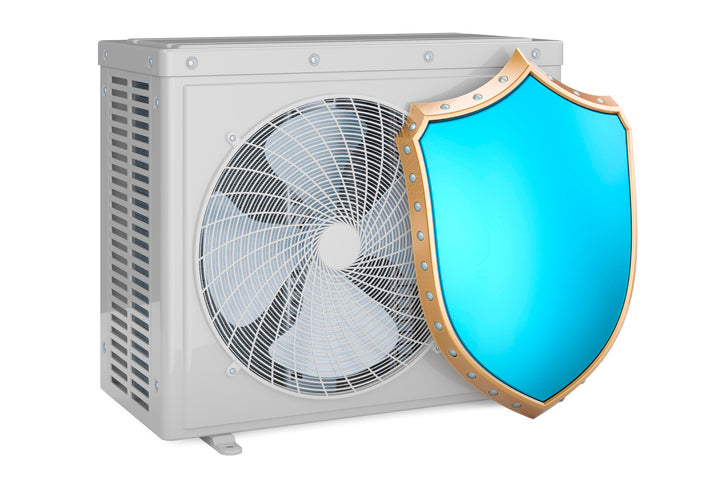Indoor Air Pollution and Pregnancy: What You Need To Know

Pregnancy is a vulnerable time for both mother and baby. In order to ensure that your little bun stays nice safe inside your oven, it’s important to take extra precautions to optimize your health. In addition to avoiding harmful substances—See you later wine and coffee!—and eating healthy so that your little one is nourished with all the essential vitamins they need to grow, it’s also important to make sure that the air you breathe is nice and clean. Unfortunately, many expectant mothers don’t realize how large of an impact the air quality in their home can have on their pregnancy until it is too late. To make sure that you and your baby stay as safe and healthy as possible, here’s what you need to know about indoor air pollution and pregnancy.
How Air Pollution Can Impact Pregnancy
The quality of the air that you breathe can have a substantial impact on your pregnancy. Namely, it can have a large influence on the health of your baby. Below, we will address some of the many ways in which poor air quality can negatively affect one’s pregnancy.
Impact on the Mother
Poor air quality has an unfavorable impact on anyone’s health, regardless of whether or not they are carrying a child. However, because pregnant women’s bodies are in a more vulnerable state, the effects of breathing polluted air can prove even more impactful. Some of the ways in which poor air quality can negatively impact a pregnant woman include increased inflammation, respiratory issues, and eye, nose, throat, and skin irritation.
In addition, if the pregnant woman has asthma, symptoms may become worse. If the asthma becomes uncontrollable during pregnancy, the pregnant woman may experience high blood pressure and preeclampsia—a pregnancy complication often resulting from high blood pressure and damage to an organ system such as the liver or kidneys. If you experience worsening asthma or symptoms of preeclampsia such as hypertension or excess swelling, talk to your doctor for professional advice.
Impact on the Birth and Baby
Another important thing to know about indoor air pollution and pregnancy is the impact air quality can have on the baby and the overall birth process. In addition to impacting the mother, indoor air pollution can also have a large effect on the birth process and the baby. Some of the most notable impacts of breathing poor-quality air during pregnancy on the baby and birth include:
- Increased Potential for Preterm Birth: Each year, the birth of millions of premature babies has been linked to poor indoor air quality. Breathing polluted air causes higher levels of toxic chemicals in the blood. As a result, the immune system is placed under an increased amount of stress which may weaken the placenta surrounding the baby. If the placenta becomes too weak, preterm birth may occur.
- Lower Birth Weight: Consistent exposure to poor quality air can also result in a lower birth weight for one’s baby. At birth, the majority of babies typically weigh between 5.5 and 10 lbs for an average of around 7.5 lbs. Babies that weigh below five pounds and eight ounces are diagnosed as low birth weight. While there are numerous factors that can contribute to low birth weights in babies, indoor air pollution could be a large contributing factor.
- Increased Rate of Infant Mortality: In extreme cases, exposure to indoor air pollution during pregnancy can contribute to an increased risk of infant mortality. Because infants are particularly vulnerable as their lungs are not well developed yet, the adverse impacts of indoor air pollution can have a substantial negative impact on their health and potentially result in death.
Long-Term Impacts on the Child’s Health
Exposure to indoor air pollution during pregnancy doesn’t just impact the mother, birth, and baby during infancy—it can also have serious, long-lasting impacts on the child’s health. Some of the ways in which breathing in poor quality air during pregnancy can have a lasting impact on a child include:
- Increased Risk of Asthma: Studies have shown that early exposure to air pollutants could contribute to the development of asthma and other immunological diseases.
- Physical Disabilities: In the case that poor indoor air quality results in premature birth, the child may not physically develop fully, which could result in a range of physical disabilities.
- Neurological Disorder: In addition to physical disabilities, premature birth caused by exposure to indoor air pollutants could also result in brain development issues. Additionally, excess inflammation in the mother caused by indoor air pollutants could also contribute to the increased rate of neurological disorders in babies whose mothers were exposed to poor indoor air quality during pregnancy.
- Abnormal Lung Development: In some cases, preterm labor—a potential result of exposure to poor air quality—can result in abnormal lung development if the baby’s lungs are not developed to a point where they are fully functional at birth.
Ways To Improve Air Quality During Your Pregnancy
Due to the many negative impacts that air pollution can have on pregnant women and their babies, finding ways to improve the air quality in one’s home is extremely important. Fortunately, there are several ways to do so. One of the most effective ways that you can make the air in your home safer for you and your baby is to improve your home’s ventilation which will help flush out contaminates.
Some ways to increase the airflow throughout your home include investing in a high-quality HVAC system, opening windows when possible, and installing fans. Other ways to improve indoor air quality include refraining from using cleaning products with harsh chemicals, cleaning your home regularly, and replacing HVAC filters regularly. In addition, homeowners should test their homes for unsafe levels of carbon dioxide, radon, asbestos, and other invisible air pollutants that may have infiltrated your living space.
Pioneer Mini Split HVAC Options
If you’re looking for an effective way to improve the air quality in your home, look no further than the Pioneer Mini Split Store. We offer a wide variety of high-quality mini-split wholesale systems in numerous different sizes, styles, and configurations. In addition to being highly efficient, our systems are also incredibly easy to install and don’t require expensive and invasive ductwork. To create a safer environment for you and your growing baby, shop our extensive online inventory today!








